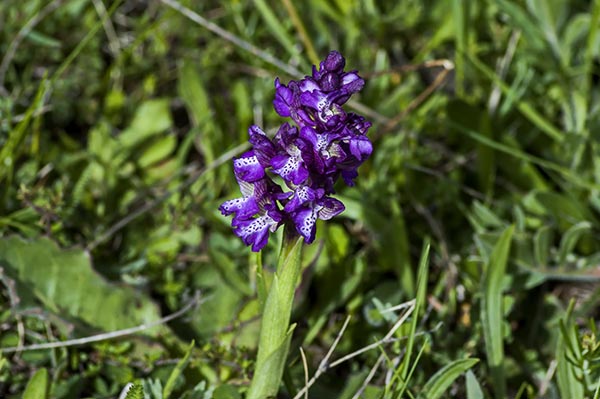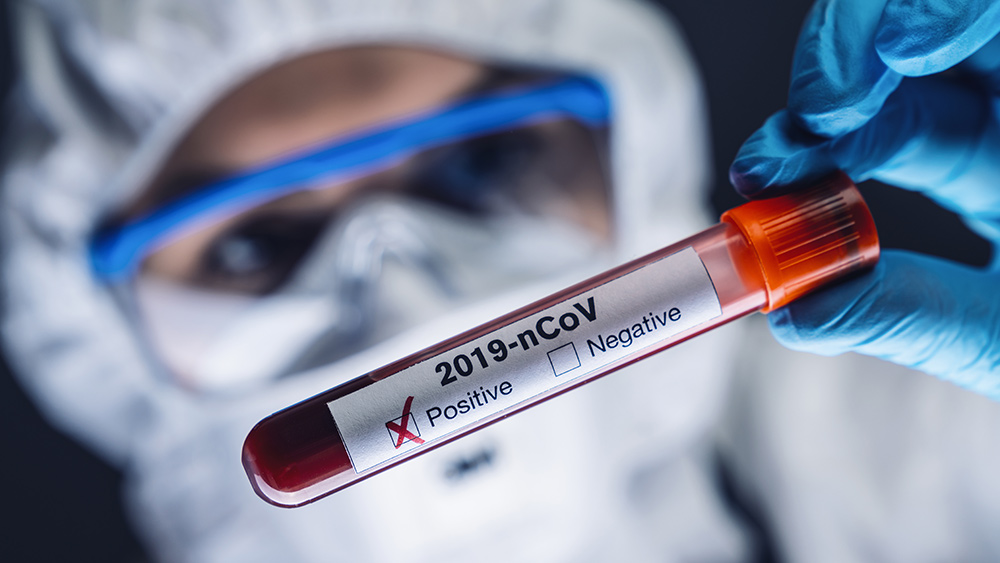Danshen herb found to have anti-cancer, liver-protective properties
06/30/2020 / By Evangelyn Rodriguez

Hepatocellular carcinoma (HCC) is the most common type of liver cancer, affecting mostly people with chronic liver disease. It is considered a major health problem worldwide, with its incidence continuing to increase. Health experts also note that HCC’s tendency to be asymptomatic in the early stages is problematic, as patients are usually diagnosed too late, when the disease is no longer treatable.
To date, only sorafenib, an oral drug used to treat advanced primary liver cancer, has been found to increase the survival of HCC patients, albeit only for a few months. Use of the drug, however, is associated with severe side effects, which have limited its clinical use. Hence scientists are continuing their search for new HCC treatments that can show good efficacy as well as tolerability.
In a recent study, researchers from China, Hong Kong and the U.S. investigated the mechanisms underlying the effects of Salvia miltiorrhiza (red sage) on HCC. Red sage, also known as danshen, is a widely used traditional Chinese medicine (TCM). The researchers found that this medicinal herb contains plenty of active compounds that can suppress the growth of liver cancer cells.
The researchers reported their findings in an article published in the journal Chinese Medicine.
The anti-cancer effects of red sage on hepatocellular carcinoma
The roots of S. miltiorrhiza (RSM) is a well-known TCM that can inhibit the development of tumors. However, its anti-cancer effects, especially on hepatocellular carcinoma, are yet to be fully elucidated.
Using two HCC cell lines (MHCC97-H and HepG2) and nude mice, the researchers evaluated the therapeutic effects of RSM in vitro and in vivo. They also used network pharmacology, which combines bioinformatics with modern genomics, proteomics and metabolomics, to explore RSM’s molecular mode of action.
Through network pharmacological analysis, the researchers successfully identified 62 active compounds in RSM and 72 HCC-related targets. They found that RSM affects HCC development by influencing multiple targets and pathways, especially the EGFR and PI3K/AKT signaling pathways. Previous studies have linked the activation of these pathways to the migration of cancer cells.
The researchers also reported that HCC suppressed cell proliferation and impaired cell migration and invasion in vitro. In addition, RSM also induced cell cycle arrest in cancer cells and triggered programmed cell death (apoptosis).
When the researchers looked at the expression of relevant proteins, they found that RSM increased the expression of Bax, which plays a role in apoptosis. RSM, on the other hand, down-regulated the expression of Bcl-2, which inhibits apoptosis. RSM also down-regulated the expression of proteins involved in the EGFR and PI3K/AKT signaling pathways in both in MHCC97-H and HepG2 cells.
In vivo, RSM inhibited the growth of liver tumors following transplantation of MHCC97-L cells in the livers of nude mice.
Based on these findings, the researchers concluded that red sage can stop the growth of liver cancer by triggering cancer cell apoptosis. (Related: TCM’s red sage is lethal to drug-resistant cancer.)
Science-backed health benefits of red sage
One of the most versatile medicinal herbs on the planet, red sage has been used for centuries to treat a wide variety of illnesses, including high blood cholesterol, Type 2 diabetes and certain types of cancer. Here are some of the benefits studies have linked to the use of red sage:
- Alleviates chest pain associated with heart problems
- Enhances cardiac function
- Helps relax blood vessels
- Lowers bad cholesterol and increased good cholesterol levels
- Protects against diabetic complications (e.g., retinopathy)
- Improves visual function in diabetics suffering from eye disease
- Promotes liver regeneration
- Inhibits the growth of pathogenic bacteria (e.g., Staphylococcus aureus, Mycobacterium tuberculosis)
- May help treat osteoporosis
Due to its popularity, red sage is now sold as an herbal tea, a tincture and as an herbal supplement. But while red sage products are easy to find and purchase, the herb has yet to receive approval from the Food and Drug Administration. There is also no established safe dose for red sage supplements. To ensure your safety and prevent unwanted side effects, consult with a natural health practitioner before using this herb.
Sources include:
Tagged Under: alternative medicine, cancer cures, Chinese medicine, danshen, herbal medicine, Herbs, natural cures, natural medicine, Oncology, prevention, red sage, remedies, research



















